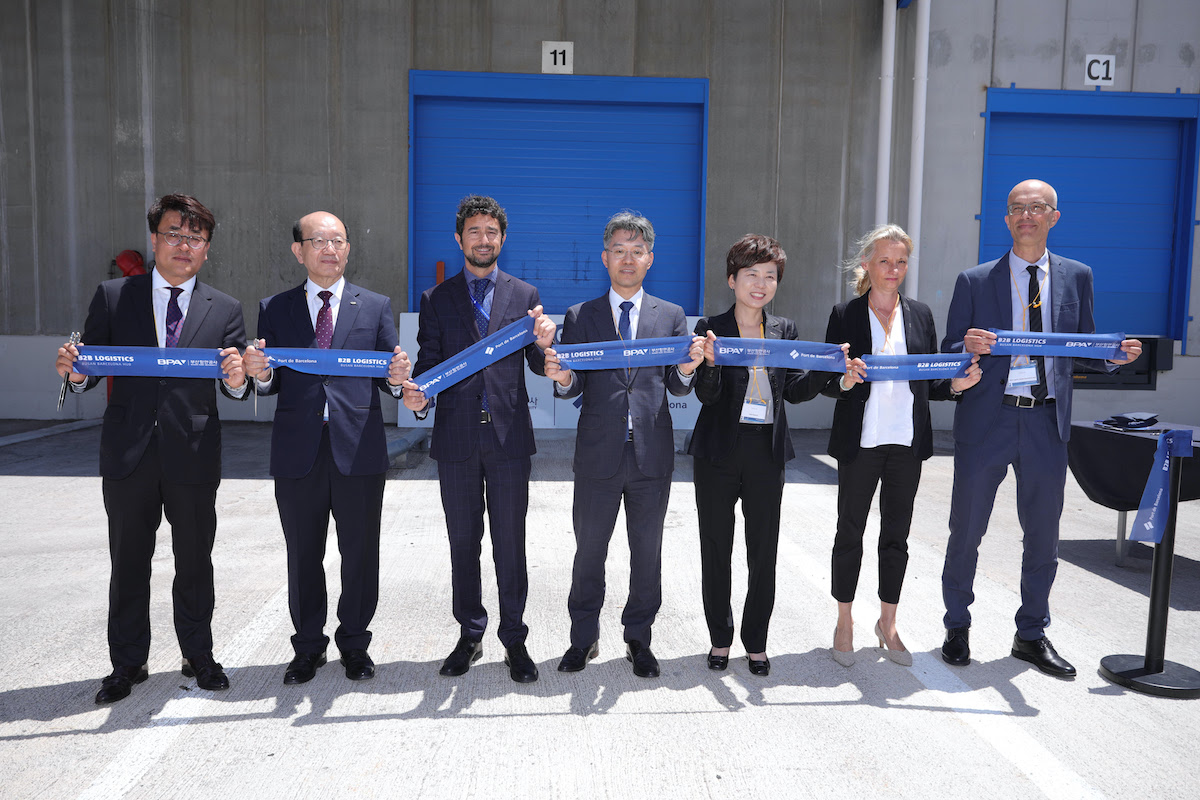03
August
2022
Share on networks
The Blue Tech Port district and the BCN Port Innovation foundation are the focal points of open and collaborative innovation.
The logistics platform B2B Logistic Busan Barcelona Hub has started operations.

The logistics platform B2B Logistic Busan Barcelona Hub has started operations. In fact, more than 55% of Spanish maritime imports from Korea enter through the Port of Barcelona and 55% of these are destined for Catalonia.
The company B2B Logistics Busan & Barcelona Hub was set up last October, with a 51% stake from the Port of Busan and 49% from the Port of Barcelona.
One year after the agreement between the Port of Barcelona and the Port of Busan to create the platform and facilitate trade and enhance the logistics of Korean companies from the ZAL Barcelona, the logistics area now has 9,129 square meters available for transit traffic.
The platform has important logistics partners in the international company FM Logistic, which with this operation enters the ZAL Barcelona, and the Korean company Taewoong Logistics, with its headquarters in Seoul and offices in Busan, which specializes in the movement of chemical products and which has not yet operated in Europe.
Trade relations between South Korea and Mediterranean Europe will be strengthened with the logistics hub that will receive the first Korean imports – a shipment of chemicals – in the coming days. In 2021, traffic between the Port of Barcelona and Korea will amount to 793,000 tonnes, a figure similar to that achieved in 2019, before the pandemic. Container traffic was around 60,000 TEUs, 6.3% more than the number of containers handled in 2019.
Catalonia currently has 140 companies (more than 1,300 workers) with a turnover of 426 million euros that together make up the hydrogen ecosystem in Catalonia.
On Monday 18 July, ACCIÓ-Catalonia Trade & Investmemn presented the first edition of the study of these characteristics that analyses the hydrogen sector in Catalonia.
Hydrogen, as the study states, can be classified into eight types, depending on the method of production. Green hydrogen, obtained thanks to the electrolysis of water using renewable energy sources such as hydraulic, wind, and solar energy, is the only climate-neutral variable.
In fact, the global turnover of green hydrogen will reach 16 million dollars in 2025, with a year-on-year growth of 56%. The potential of this resource to decarbonize the economy is driving global investment in this field, which will exceed 340,000 million dollars by 2030, favored by the fall in production costs, which will be 62% in 2030 compared to 2020.
During his speech at the presentation of the study, Castellanos stressed that “green hydrogen is strategic for Catalonia and a key element in achieving a sustainable, distributed and decentralized energy model”.
The Secretary for Business and Competitiveness added that “Catalonia has a unique concentration of factors that make it particularly suitable for the development of green hydrogens, such as unquestionable leadership in the chemical sector, a solid industrial base, and the technological and knowledge capacity to deploy this energy carrier”.





Subscribe our Newsletter
Subscribe
Follow us on social